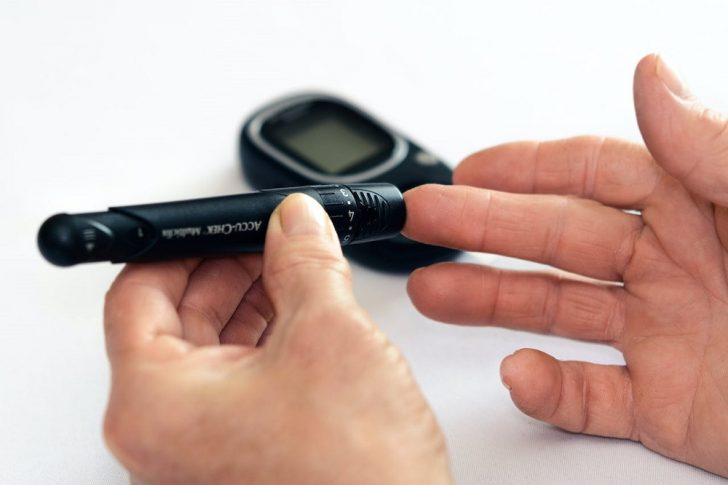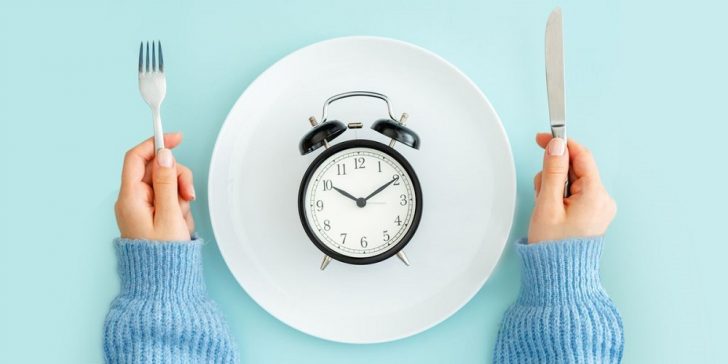
A Game-Changer for Weight Loss in Type 2 Diabetes

Counting time is easier than counting calories, and for people with Type 2 Diabetes (T2D), this could be a game-changer in their weight loss journey.
A recent study published in JAMA Network Open reveals the surprising effectiveness of time-restricted eating, also known as intermittent fasting, in helping individuals shed pounds and improve their long-term blood sugar levels. In this article, we’ll explore the findings of this study and why time-restricted eating might be a promising strategy for those battling T2D.
Innovative Weight Loss Strategies Are in Demand
Type 2 Diabetes is a growing health concern, affecting approximately 1 in 10 adults in the United States, according to the Centers for Disease Control and Prevention (CDC). Alarmingly, if current trends persist, this number could rise to 1 in 3 people by 2050. Given these statistics, innovative weight loss strategies are urgently needed to combat this epidemic.

Pixabay/ Pexels | If you’re new to intermittent fasting, it’s a good idea to start slowly and gradually extend fasting periods to allow your body to adapt.
Over 90 Percent of Participants Were People of Color
The study, conducted with 75 participants, aimed to assess the effectiveness of time-restricted eating compared to traditional calorie restriction. Participants had an average age of 55, an average BMI of 39, and an HbA1C level of 8.1 percent. Time-restricted eating involves consuming food and calorie-containing beverages only during specific hours of the day, typically within a designated eating “window.”
Notably, the study included a diverse group, with 40 percent of participants being Hispanic, 53 percent Black, 5 percent white, and 1 participant of Asian descent. This diverse representation is crucial because T2D is more prevalent among certain ethnic groups, making it important to evaluate the effectiveness of strategies like time-restricted eating within these populations.
Time-Restricted Eating Outperforms Calorie Counting
The participants were divided into three groups: those practicing time-restricted eating, those adhering to calorie restriction, and a control group maintaining their usual eating habits.
The time-restricted eating group had an eight-hour eating window from 12 p.m. to 8 p.m. daily, without calorie counting or dietary restrictions. During fasting, they consumed water and calorie-free beverages, maintaining a daily eating log.

PhotoMIX Company/ Pexels | The study’s results highlight the potential of time-restricted eating as a viable weight loss strategy for individuals with Type 2 Diabetes.
On the other hand, the calorie restriction group aimed to reduce their calorie intake by 25 percent based on their baseline energy needs. This meant cutting 500 calories from their daily intake if their baseline energy need was 2,000 calories. They received personalized meal plans and tracked their food intake using an app.
After six months, the results were striking. The time-restricted eating group lost 3.6 percent of their body weight, while the calorie-counting group lost 1.8 percent, both surpassing the control group. Intriguingly, both groups achieved a similar reduction in HbA1C levels by 0.9 percent.
Why Did Time-Restricted Eating Triumph?
Several factors contributed to the success of time-restricted eating. First, adherence was higher in the time-restricted eating group, possibly because many participants had previously struggled with calorie-restriction diets, making time-restricted eating an easier approach.
Secondly, participants in the time-restricted eating group found it easier to follow, while many in the calorie-restriction group reported difficulties. Lastly, the time-restricted eating group reduced their daily calorie intake by 313 calories on average, compared to 197 calories in the calorie-restriction group.

Julien Bachelet/ Pexels | Fasting periods can help regulate appetite hormones
Weight Loss Compared to New Weight Loss Drugs
Although the weight loss achieved through time-restricted eating was modest (less than 4 percent), it’s important to note that the results can be considered in the context of available medications like Ozempic, Wegovy, and Mounjaro, designed for both diabetes management and weight loss. These medications often yield more significant weight reductions.
Similar Blood Sugar Improvements
Surprisingly, despite the differences in weight loss, both groups exhibited comparable reductions in HbA1C and mean glucose levels. This might be attributed to similar reductions in visceral fat and waist circumference, both important factors in T2D management. Reducing belly fat is not only linked to diabetes risk but also associated with a higher risk of heart disease and stroke.
Consult Your Doctor
The study found no serious adverse events during the six-month duration. The occurrences of both hypoglycemia (low blood sugar) and hyperglycemia (high blood sugar) were similar across all groups.
However, it’s important to remember that this study was relatively small and serves as a proof of concept. Individuals with T2D interested in time-restricted eating should consult their healthcare professionals before embarking on this dietary approach.
More in Well-Being
-
`
Should I Visit a Chiropractor? The Tell-Tale Signs
If you’re wrestling with persistent discomfort in areas like your neck, back, or shoulders, you’re not alone. Many Americans are intimately...
July 19, 2024 -
`
Chad Smith and Will Ferrell Drum-Off – A Night of Comedy and Music
The year was 2014. The late-night talk show landscape was abuzz with a brewing battle unlike any other. It wasn’t a...
July 8, 2024 -
`
Can Coughing Cause Back Pain?
Back pain is a common complaint among many individuals, but did you know that a simple action like coughing can exacerbate...
July 5, 2024 -
`
How to Overcome Imposter Syndrome?
Imposter Syndrome is a familiar term many recognize as a psychological state where individuals doubt their accomplishments, fearing that others will...
June 27, 2024 -
`
Which Peptides Are Best for Anti-Aging?
For those seeking to combat the signs of aging and maintain a youthful appearance, the world of skincare can feel overwhelming....
June 18, 2024 -
`
Celebrities with Celiac Disease – Inspirational Stories and Struggles
Celiac disease is a serious condition, and even the rich and famous aren’t immune. Many celebrities have been open about their...
June 10, 2024 -
`
How to Fix Poor Sleep Hygiene for Better Rest
Sleep is a fundamental human need, as crucial for our well-being as a healthy diet and regular exercise. Yet, many people...
June 6, 2024 -
`
5 Easy & Effective Ways of Coping With Depression
Depression is more than just feeling sad or having a bad day. It is a pervasive mental health condition that affects...
May 30, 2024 -
`
Top 10 Practical 60th Birthday Ideas For Everyone
Turning 60 is a milestone worth celebrating! Whether you are planning your own bash or organizing a celebration for a loved...
May 24, 2024















You must be logged in to post a comment Login